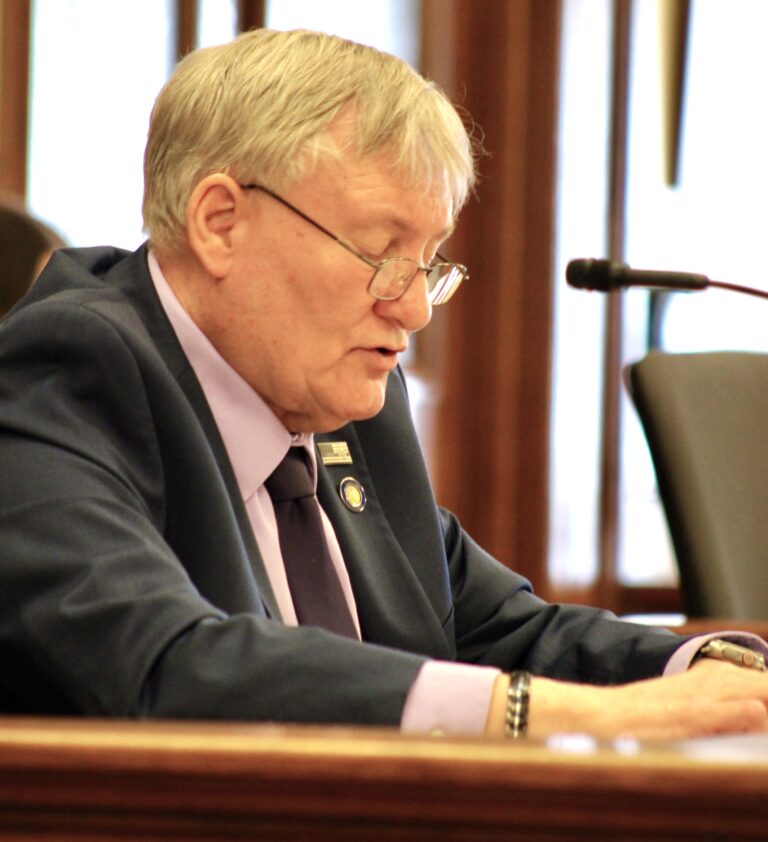The Capitol Report, produced by WisPolitics.com — a nonpartisan, Madison-based news service that specializes in coverage of government and politics — provides a weekly analysis of issues being
debated in Wisconsin state government. It is underwritten by the WNA and produced exclusively for its members. WisPolitics President Jeff Mayers is a former editor and reporter for the Associated Press and a former political writer for the Wisconsin State Journal. The WisPolitics logo can be downloaded here.
Editor’s note: This column is provided to Wisconsin Newspaper Association members by WisPolitics.com. Proper attribution to WisPolitics.com is appreciated. Also, please publish the tagline that is included at the end of the column.
Gubernatorial candidates vie for Democratic nomination
With a crowded field for governor, Democratic candidates are trying to find their lane for a victory on Aug. 14. Here are summaries of speeches from the top nine gubernatorial candidates to the state Democratic Party convention on June 1 in Oshkosh, as reported by WisPolitics.com.
TONY EVERS, state schools superintendent: He’s sometimes asked why he wants to run for guv because some believe he should continue fighting for schools as state superintendent. But Evers said that’s exactly why he’s running. “I am running for governor because I am god damn sick of Scott Walker gutting our public schools, insulting our hardworking educators and destroying higher education in Wisconsin,” Evers said. Evers, who has won statewide election three times, touted his electability to activists. Evers also told delegates about being diagnosed with esophageal cancer in 2007, saying he beat it and has been cancer-free for the past nine years. Noting he lives with a pre-existing condition, Evers said he would protect those in a similar situation and take the Medicaid expansion money to provide more coverage. “I beat cancer and I will beat Scott Walker,” he said.
MATT FLYNN, Milwaukee attorney: He promised to legalize marijuana, raise the minimum wage to $15 an hour and “get rid of Act 10 once and for all.” Flynn, a former state party chair, also took aim at Foxconn, saying as a litigator, he is the most qualified candidate to take on it and Walker. “It’s a crooked deal, and I’m going to put an end to it,” he said.
ANDY GRONIK, Milwaukee businessman. He implored Dem activists to pick a fighter to take on Walker this fall. Gronik, who has never run for public office before, asked audience members to hold up their hands if they believe politics as usual is working. He then pivoted to his fellow Dem candidates, saying he’s met a lot of wonderful contenders during the campaign and enjoyed meeting them. “But the bottom line is Scott Walker has beaten the establishment politician three times in a row,” Gronik said, asking crowd if it was reasonable to expect success by doing the same thing over and over. “It’s going to take a fighter,” he said.
MIKE McCABE, campaign finance reform activist: He dared Dems to dream of a new type of politics that works for Wisconsinites instead of a wealthy few. He said Wisconsin no longer maintains its status as a state of firsts, a state where ideas like social security and kindergarten got their start. “Our state has lost its way,” he said. “[It’s] slowly but surely becoming a shadow of itself.’’ He said he’d attempt to be the first state to experiment with universal basic income, and would call for affordable college education for all.
MAHLON MITCHELL, head of firefighters union: He called for Wisconsinites to band together like the members of his union did when one of their own suffered a severe accident. “What I saw after [the accident] was brothers and sisters from across the country that came together for Casey in his greatest time of need. What happens when someone doesn’t have that support system?” Mitchell said. He argued government can help the state’s citizens by instituting a $15 minimum wage, eliminating the state’s private voucher program and decriminalizing addiction. By electing him, he also said the state would make history with Wisconsin’s first African-American governor.
KELDA ROYS, former state representative from Dane County: She touted a vision for Wisconsin that includes free two-year college and 12 weeks of paid universal family leave. “Every election is about the future, this year so much hangs in the balance,” Roys said. “[It’s] time to build the world our kids deserve.” Roys, who opened her speech with an account of her 3-year-old daughter rehearsing an active shooter drill, called for responsible gun control laws to create a world where children may thrive in. On education, Roys demanded an end to the state’s private voucher program, underscoring that public money belongs in public schools.
PAUL SOGLIN, Madison mayor: He took a dig at Mitchell as he pitched himself as the only candidate in the field with the experience needed to defeat Walker. Soglin told the convention hall he was “there on the first day” of the fight against Act 10, “standing up to the bully unlike one of my competitors writing glittering letters to Walker.” Act 10, which stripped most public employees of their power to collectively bargain, did not include firefighters. Mitchell, who took over as head of the state firefighters union shortly before the bill was unveiled, initially released a statement praising Walker for recognizing “the critical work that we do protecting the residents of our communities.” But he later became a figure in the Capitol protests against the proposal.
KATHLEEN VINEHOUT, state senator from Alma: She vowed to put people first over corporate interests, illustrating the state’s $3 billion Foxconn deal as being equal to a path of $100 bills stretching from Racine to San Francisco. Instead of protecting corporate interests, Vinehout said she’s for people like Rachel, a woman in Racine who works 40 hours per week on minimum wage. She said it would take Rachel a lifetime of working just to walk a mile on a path of $100 bills. “After a lifetime of working, from 16 to age 70, Rachel will be less than a mile down the street she lives on. Our priorities are upside down,” she said. Vinehout vowed to reflect her commitment to working Wisconsinites through the state budget, providing health care for families, affordable tuition and clean water. She also touted accessible public transit, reinvesting in the UW System and addressing climate change.
DANA WACHS, state representative from Eau Claire: He acknowledged the employment rate in Walker’s Wisconsin may be low, but that many residents are forced to work more than one job to make ends meet. With that in mind, he called for a $15 minimum wage, a restoration of collective bargaining rights, increased funding for public schools to stop what he described as an exodus of teachers to Minnesota. “I know that Wisconsin is better than Walker,” Wachs said. “The Wisconsin idea is making a comeback.”



